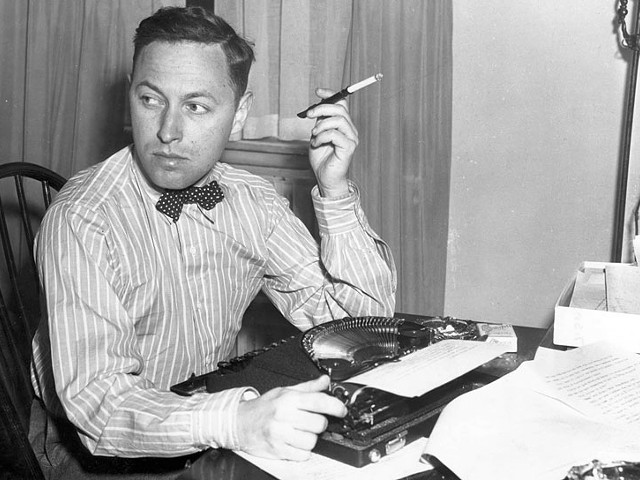Upstream Theater can always be relied upon to deliver an evening of unconventional drama. On that score the company's current offering, The Death of Atahualpa, does not disappoint. This sampling of oral theater — an authorless drama that has been handed down from generation to generation for four centuries — tells the tale of "the grand tragedy" in 1533 of the death of an Incan king at the hands of Spanish conquistadors led by Francisco Pizarro. As a saga about the "collision of empires," The Death of Atahualpa has the makings of epic storytelling. But as re-interpreted here by director and adaptor Philip Boehm, the story is anything but epic; rather it is intimate, even playful.
Before the show begins, the Kranzberg Arts Center evokes the same studied casualness that you might find prior to the start of a production of Hair. Although Amy Loui (who is described in the playbill as the "woman who weaves") remains at her loom, focused on her work, the other five performers (Bethany Barr, Eric J. Conners, R. Travis Estes, William Grivna, Dennis Lebby) wander about the stage, chatting among themselves and listening to the up-tempo music performed by Son de America, an accomplished trio whose embracing yet often wistful melodies evoke the thin air of Peru's high Andes.
When the action kicks in, we are treated to an example of Andean oral tradition. The story might be Peruvian, but the manner of presentation conjures theater styles and traditions from throughout history. It is, for instance, easy to imagine the one-hour intermissionless Atahualpa as a sixteenth-century European medieval morality play or, more recently, as a traveling Toby show that might have toured the back roads of rural America in the late nineteenth and early twentieth centuries. The sheer simplicity of The Death of Atahualpa is reminiscent of The Murder of Gonzago, the play (within a play) that Prince Hamlet stages to confirm his Uncle Claudius' complicity in the death of King Hamlet. It has that kind of blunt directness.
I suppose it's sad to see Atahualpa laid low, sadder still to watch this Sun God be forced by his captors to accept Christianity before he is murdered. But perhaps the saddest element of the evening is how it reminds us of the death of oral storytelling. It's hard to imagine storytellers handing down a version of The Death of President Kennedy when we can watch the bullets entering his brain on YouTube. Visuals have made verbals secondary. So perhaps the most rueful part of this Upstream telling is the account at evening's end about the arrival in the Andes — not of the Spanish explorers — but rather of electricity. Progress can put a real crimp on traditions.
The Death of Atahualpa is an oddity, to be sure, and your response to it will likely depend on your curiosity for theater traditions. But it's certainly a change of pace from the tried-and-true. Maybe the only thing wrong with this current staging is that it occurs in a theater, which feels too confining. Too bad Upstream couldn't have presented it outside on a cart. Then the evening's festive nature could have taken full bloom.





